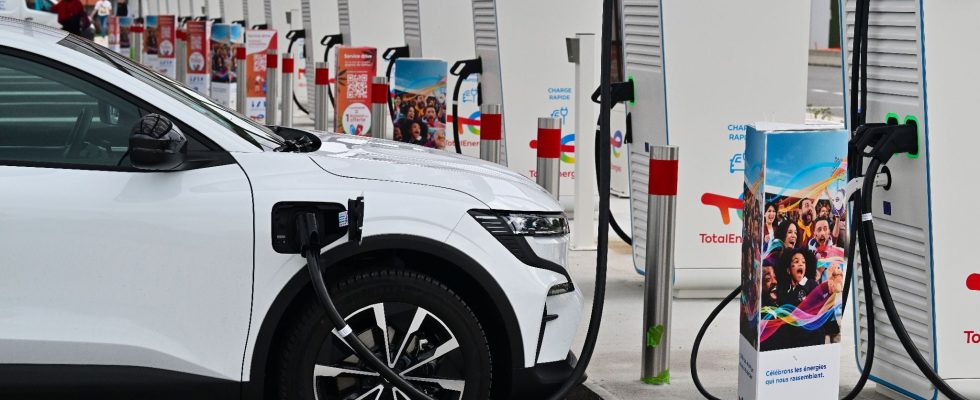The National Rally (RN) does not have wind turbines in its heart. Neither do electric cars. During the debate organized on TF1 on Tuesday between representatives of the three political blocs of the moment, the president of the far-right party, Jordan Bardella, once again opposed the ban on sales of new thermal cars set in the European Union in 2035. “We are going to find ourselves in a somewhat Cuban-style society, where the working classes and the middle classes will not be able to buy electric vehicles because they are too expensive”, justified the candidate in drawing an improbable parallel between France and the Caribbean island, where the average salary is around thirty dollars per month. And to ensure that the future ax “also disrupts the automobile industry”. “Several manufacturers have obviously sounded the alarm,” guaranteed Jordan Bardella.
His statement echoes that of other European parties, such as the German right, which has been constantly pushing to abandon the 2035 deadline, with a relative result for the time being. All are now banking on the review clause scheduled for 2026. Is this enough to call into question the European decision to reduce CO2 emissions from the vehicle fleet? “The Commission has discretionary power of initiative to reopen the file. It will have the final say on whether or not to activate the review clause,” explains Phuc-Vinh Nguyen, a researcher on energy policies at the Energy Center of the Jacques Delors Institute. “But it is not impossible that some Member States will exert strong political pressure to reopen the file, especially if Ursula Von der Leyen is tempted to move closer to the right, for example the ECR group led by Giorgia Meloni, to secure her re-election as head of the institution.” The vote by MEPs on the reappointment of Ursula Von der Leyen could take place on July 18.
A risk of chain reactions
The subject is high risk, according to this expert, especially since it is likely to cause chain reactions. “Returning to the end of the thermal vehicle in Europe could have an impact on the rate of deployment of charging stations. This risks affecting the regulation dedicated to them, as well as the directive on renewable energies which support the deployment of electric mobility”, fears Phuc-Vinh Nguyen. Renunciations that would weigh heavily on the decarbonization of the EU since the road sector represents a fifth of the region’s CO2 emissions, and private cars, more than 60% of these emissions. The industry will not come out of it unscathed either.
While he has never been a strong supporter of electric cars, the CEO of Stellantis, Carlos Tavares, has, for example, committed to devoting no less than 30 billion euros to them between 2021 and 2025. It is difficult to imagine going back after such an investment. In mid-April, the Portuguese leader was clear: “Those who defend the status quo are those who have no vision. We cannot afford the luxury of inaction,” he said, calling for “stability” of the rules in Europe. Especially since China is continuing its rise in electric cars… And could well end up becoming impossible to catch if European manufacturers stall in the middle of their recovery. It remains to be seen whether these arguments will be enough to convince the RN to shelve its proposal, further lengthening the list of its abandoned projects.
